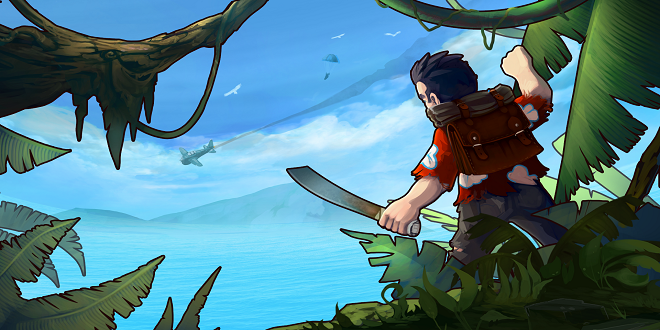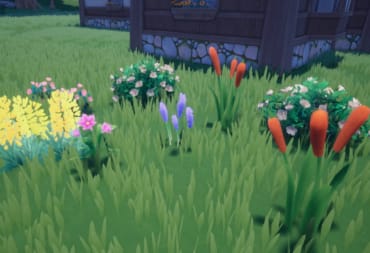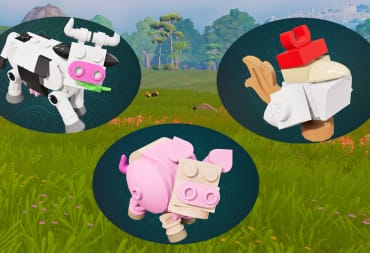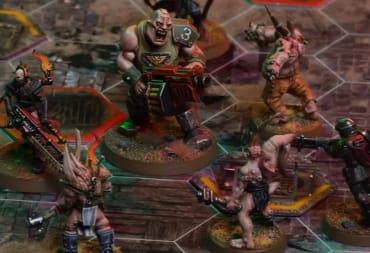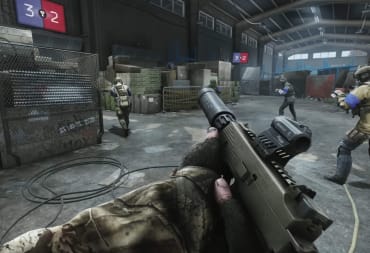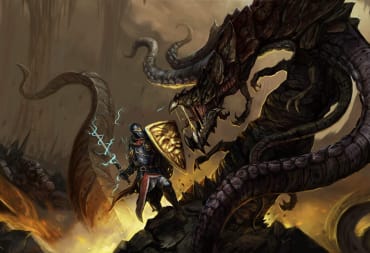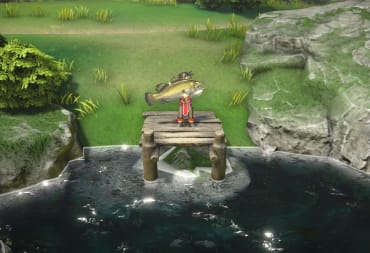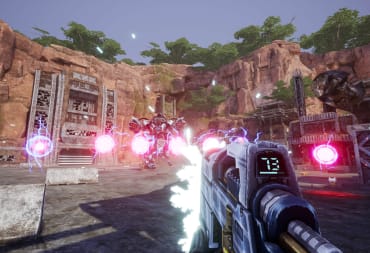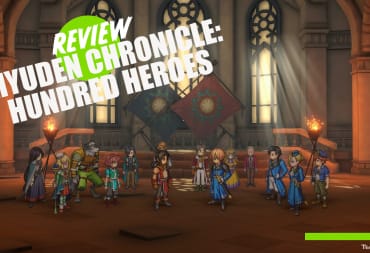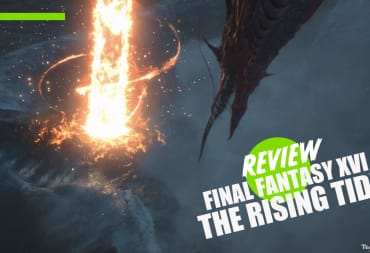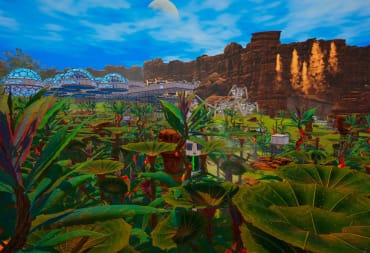Permadeath isn’t a new thing in video games. Neither are procedurally generated worlds or hack and slash combat. However, Lost Sea is attempting to meld these gameplay mechanics into one cohesive action-adventure roguelike. Sadly, the result doesn’t introduce enough new mechanics to any of the above gameplay formulas for Lost Sea to stand out. Sure, it’s a competent roguelike and a competent hack and slasher, but is there any real reason to play Lost Sea rather than the hundreds of other games that pull off these features better?
First, let’s start with the story. Lost Sea begins with a single tutorial island, and on that island, you learn that you are playing as a castaway taken by the mysterious magic of the Bermuda Triangle. Your end goal is to reach a portal that will transport you back to your world, but to do this you need to bring magical tablets that are located around the various procedurally generated islands, and these tablets help you advance your ship to new islands. That’s pretty much it.
Throughout all my hours playing the game, 95% of the story presented to me was done so within the first twenty minutes of me playing Lost Sea. This, coupled with the fact that there is virtually no environmental storytelling occurring either, leaves the player unmotivated to go out and explore the world. By the end of my time spent with the game, my mind was wholly focused on gameplay and upgrades, and all I wanted to do was get through each island as quickly and efficiently as possible. Not every game needs a fully fleshed out story, but Lost Sea, in particular, would benefit from one.
This lack of story is mostly upsetting because Lost Sea is a genuinely pretty game with interesting props and features scattered around every map. It’s disappointing to learn that these features are there purely to look nice and nothing else. The game takes you through five different archipelagoes, and each archipelago has a central theme tied to a biome, for example, a swamp or desert archipelago, and the islands benefit aesthetically as a result of this. Stepping off my ship onto a swampy island for the first time was special, and the environments are fun to explore at first. However this feeling of awe simply doesn’t last very long. To reach the end of each archipelago, you need to visit multiple islands to collect tablets that allow your ship to travel farther and farther. So, that feeling you got when you first stepped off your ship to behold a swamp island for the first time isn’t the same feeling you get the fifteenth time. The game has an attractive and appealing art style but fails to capitalize on it.
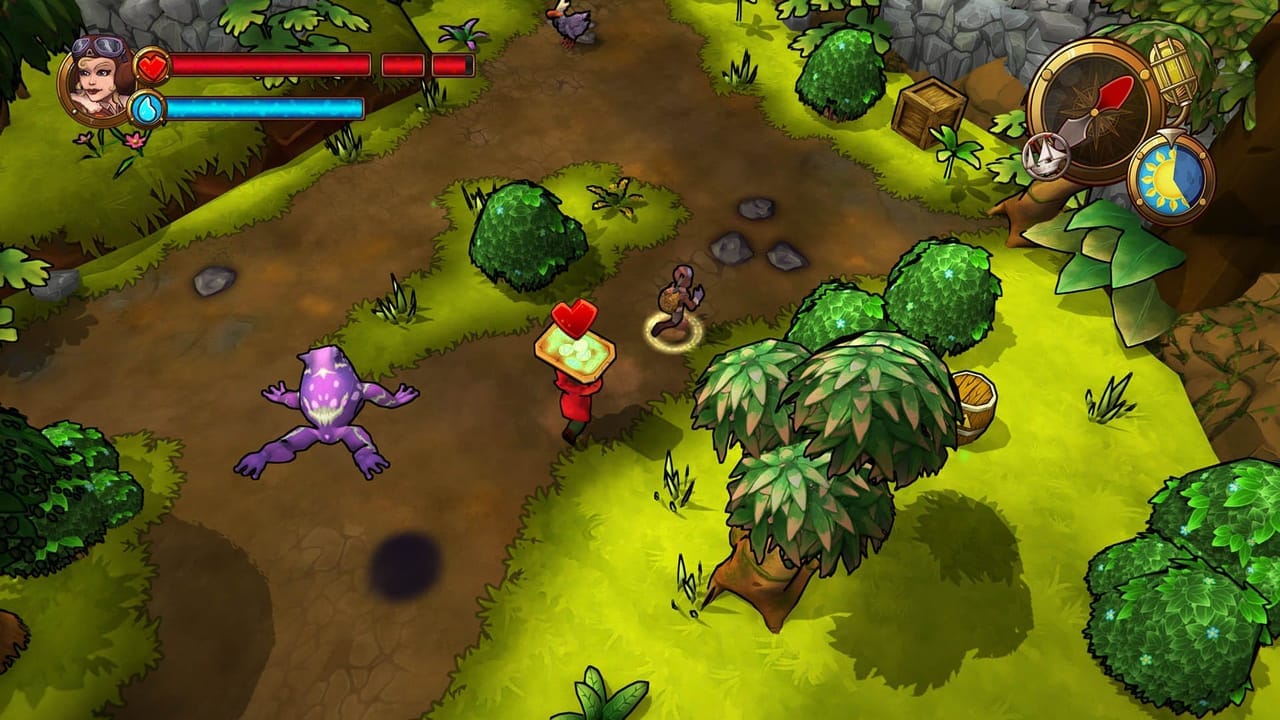
The general looks of the islands aren’t the only things that feel repetitive in Lost Sea. The actual makeup of each island quickly grows old in Lost Sea, and this is a direct result of the game’s use of procedural generation. The way the game uses procedural generation is through hexagonal map tiles. Each side of the hexagon can either be an opening to the next region or closed off. This means that map tile X can have three opening, and one of those openings leads to map tile Y, which only has one entrance and no exits. This allows the game to lay out levels in thousands of different variations, but when you’re only using a handful of presets for each map tile layout, the regions grow old quickly.
I got bored of seeing the same landmarks and regions over and over again. Yeah, this cemetery looks cool, but I’ve already seen it dozens of times, so I’m just going to rush through it as quickly as possible. There are plenty of other roguelikes who use procedural generation and don’t suffer from this problem. What’s the point in exploring an island that I feel like I’ve already explored many times before? Lack of variation is probably Lost Sea’s biggest flaw and truly prevents it from being anything special.
The only aspect of Lost Sea that you honestly see a wealth of variety in is enemy types. Each archipelago comes with a set of creatures that you’ll need to slay to fully explore every island, and they all play by their own rules. Yes, by the time you reach the end of each archipelago you will have seen all the different types of enemies, but the game’s procedural generation does a good job in mixing up the ways you might encounter your enemies. For example, goliaths may be simple to take down when they are alone, but pair one up with two charging raptors and you’ve got a legitimate challenge on your hands. This, along with the ever-present danger of permadeath, makes combat in Lost Sea feel rewarding, even if it is just mashing one button over and over again to swing your machete. Hit points are precious in Lost Sea, and any combat encounter could be your last.
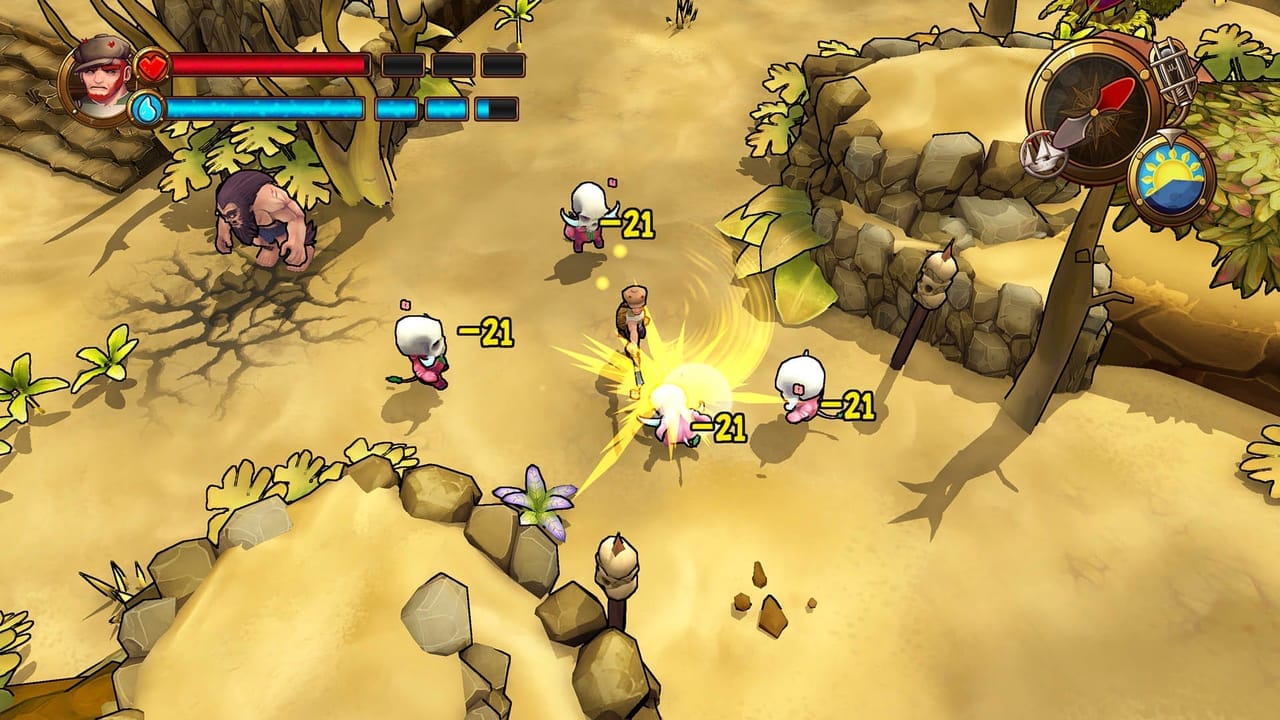
Lost Sea rewards you with the feeling of satisfaction in taking down a group of hostile enemies, but rarely through actual loot and upgrades. Each island that you explore holds hidden treasure chests, and these chests contain usable items such as bombs or health packs. Although these rewards can be useful in different situations, that’s pretty much the only loot that you’re going to find in Lost Sea besides the rare and useless collectible. Besides treasure chests, you can also rescue crew members around the island that will follow you around and aid you, but only minimally.
Your new buddies can do things like open chests and build bridges, but they do not directly help you in combat. However, this doesn’t mean that they are entirely useless. Some crew members have the revive ability which raises you from the dead if you run out of HP, an ability that saved me from having to start the game from the beginning multiple times. Other crew members have the capacity to increase your damage output and your experience gain from slaying enemies. Crew members are helpful, yes, but they can also be dead weight at times. It’s frustrating to be doing everything right and have your crew members get themselves killed because they were standing out in the open while an enemy attacked them. The AI of your companions is a serious flaw that severely limits you as the player at times and forces you into the role of babysitter rather than explorer far too often.
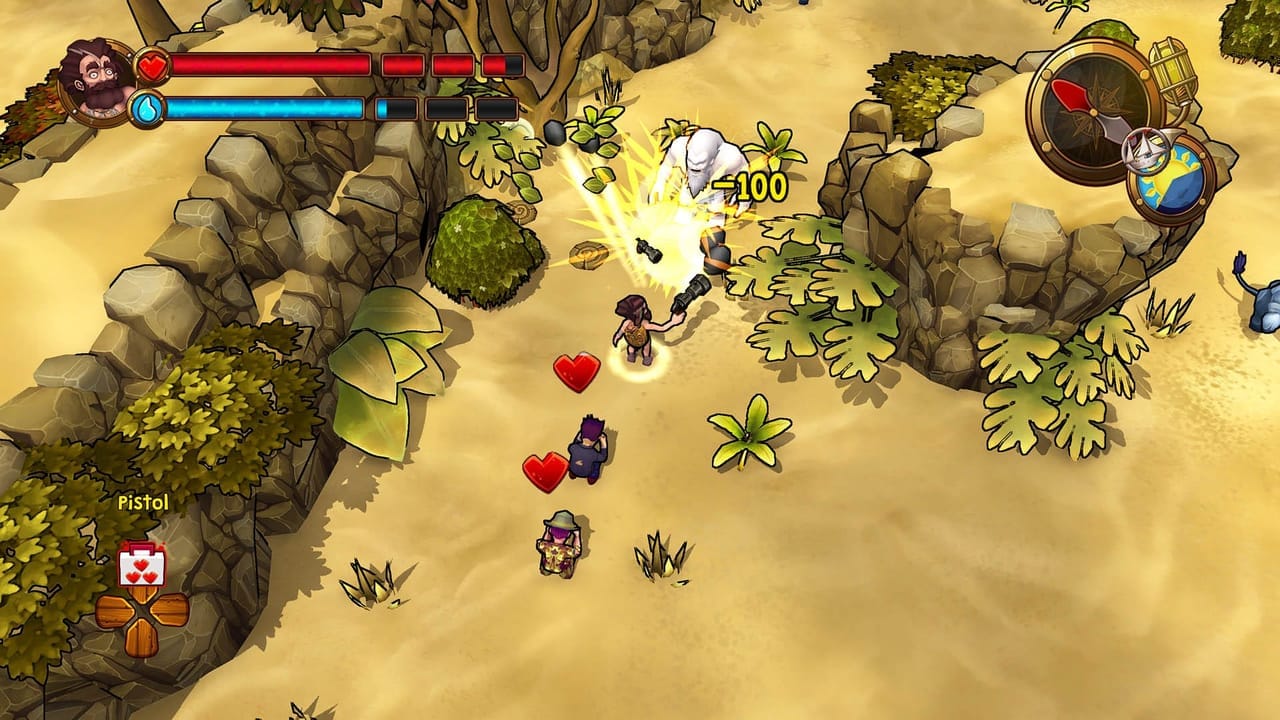
Treasure chests and crew members are found on every island you visit, but the majority of your time on each island will be spent cutting down enemies for XP and smashing crates and boxes for coins. The XP from killing enemies allows you to purchase new skills, and the coins allow you to upgrade your ship. Some of these upgrades and skills are useful and practical, but there are also plenty that aren’t. On top of that, you are severely limited in choices. Many upgrades and skills are either too expensive to buy until you reach a certain point in the game or can only be purchased if you buy other upgrades first.
Lost Sea acts like it’s giving you a whole list of options for improving your character, but in reality, there’s a clear path that the game wants you to progress down, and this severely hurts the game considering branching progression is one of the biggest draws of a roguelike. It took me many tries to get through Lost Sea, but by my third attempt at a playthrough, I had already learned the most efficient way of building a character, which dampened the fun of progression.
Simply put, Lost Sea is a competent roguelike, but just barely. While most roguelikes are perfect for playing in short bursts, Lost Sea doesn’t give you that option. It expects you to play straight through the entire game without stopping or closing the game at all. This wouldn’t be a problem if the game had a suspend save option, but it doesn’t. That means that if you want to stop playing Lost Sea and pick up where you left off, you have to keep the game running on your system in the background. I get that the game doesn’t have save points, it’s a roguelike and permadeath has to matter. However, for the everyday gamer, this system just isn’t practical. If I die, I fully understand having to start the game from the beginning and try again having learned from my previous mistakes.
I do not, however, understand the idea of punishing the gamer for possibly wanting to take a break from playing Lost Sea to play a different game for a little while and then come back to where they left off. Lost Sea’s attempt to remedy this problem is with the ability to warp to an archipelago closer to the final boss, but when you warp you don’t bring any of your previous upgrades and skills with you. More often than not, this situation ends up doing nothing but setting players up to die and then having to start from the very beginning again.
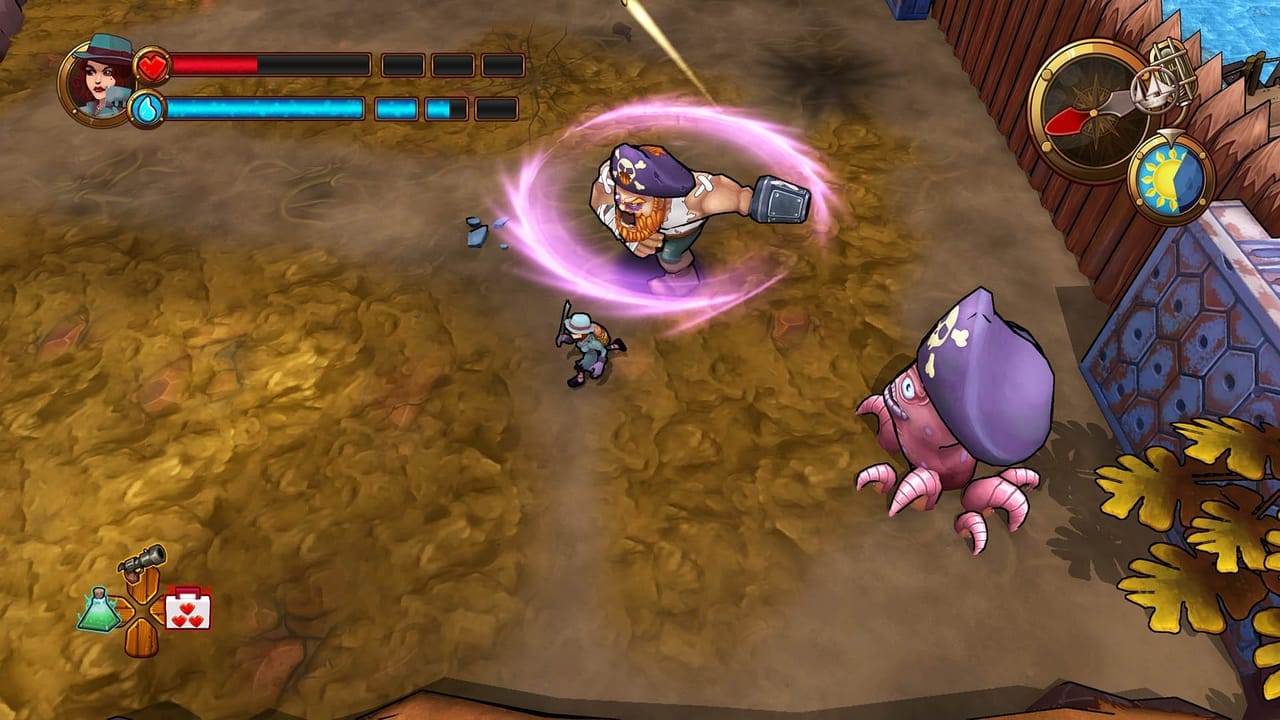
Lost Sea suffers mostly from its reluctance to take risks and try anything too different, and as a result, it doesn’t manage to be anything above average. It’s a roguelike that suffers where most other roguelikes thrive with its uninspiring upgrade system and repetitive levels and areas. While Lost Sea stands out in areas like art direction and enemy variety, these pros aren’t enough to outweigh all the cons.
Simply put, Lost Sea is a whole lot of repetition with very little payoff. Finally beating the game feels great, not because the final boss battle is anything special, but because it just feels good to have finally come out on top after all the struggling. If you are a diehard fan of roguelikes, then Lost Sea might just be for you because of the simple fact that it manages to check off all the boxes. If you like the idea of permadeath, then maybe you’ll enjoy Lost Sea, where the developers managed to make a game where death truly does matter. However, for the rest of the gaming world, I have to recommend that you pass on Lost Sea.
Lost Sea was reviewed on a PlayStation 4 using a code provided by the developer. The game is also available on Xbox One and Steam.
Review Summary
Lost Sea simply doesn't do enough to set it apart from other games within the same genre. While it does some things competently, there are still plenty of flaws that stand in the way of it being anything special.
(Review Policy)Have a tip, or want to point out something we missed? Leave a Comment or e-mail us at tips@techraptor.net
